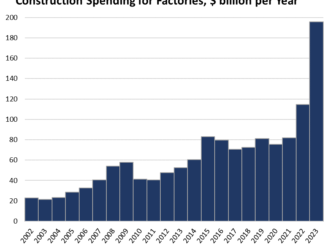
Washington, DC – As US politicians make their final appeals to voters ahead of critical midterm elections, a wide-reaching and varied set of issues has dominated discussions across the United States.
Republicans, who are seeking to retake control of Congress from their Democratic Party rivals, are lamenting the state of the economy amid a global financial downturn and a steady rise in the cost of living.
And Democrats are focusing on abortion rights after the US Supreme Court revoked the constitutional right to the procedure, while raising concerns about the future of democracy and fair elections in the country.
The November 8 election, which will see all the seats in the House of Representatives and more than a third of the Senate up for grabs, will have an enormous influence on the rest of President Joe Biden’s term.
Here, Al Jazeera examines the major issues at play in this election cycle.
The economy
“It’s the economy, stupid.”
That was the de facto motto of Bill Clinton’s 1992 campaign against incumbent President George HW Bush, who had rallied dozens of countries across the world to beat back Saddam Hussein’s invasion of Kuwait. As Bush tried to tout the triumph of the first Gulf War, Clinton shifted the focus to an economic recession at that time and won the presidency.
Taking a page out of Clinton’s book, this year Republicans have been pushing to make the economy a central issue in the midterm elections, often accusing Biden of seeking to distract from soaring inflation.
Despite a dip in petrol costs in August, consumer prices went up 8.3 percent compared to the same month last year. While Democrats argue that inflation is linked to global events, such as the war in Ukraine, and coronavirus pandemic-related supply chain issues, Republicans say government spending, which has accelerated under Biden, is to blame.
“Inflation is crushing Americans, and it’s disproportionately hurting the most vulnerable,” Mehmet Oz, a Republican Senate candidate running in the swing state of Pennsylvania, wrote on Twitter on September 20. “It’s making everyday necessities like groceries cost more. Hurting small businesses. And hitting seniors, many of whom rely on Social Security, when they need every last penny.”
Abortion
In contests across the country, Democrats are prioritising abortion rights in their pitch to voters, portraying the elections as a referendum on reproductive rights.
Since the overturning of the Supreme Court’s 1973 Roe v Wade ruling in June, many conservative US states passed restrictive abortion laws, including near-total bans.
In response, Democrats have been trying to pass a federal law to protect the right to abortion, but currently, they do not have the numbers in the Senate, where a legislative procedure known as the filibuster requires 60 votes in the 100-member chamber to pass major legislation.
With the election looming, Biden and other top Democrats have promised to carve out a filibuster exception if they retain the House and expand their majority in the Senate.
Most Republican officials argue that abortion regulations should be handled by US states. But Senator Lindsey Graham – who is not up for re-election – recently introduced a federal bill to ban abortions at 15 weeks of pregnancy.
“This November: Abortion access will be on the ballot. A woman’s freedom will be on the ballot. The future of women’s reproductive rights will be on the ballot,” Democratic Senator Maggie Hassan, who is seeking re-election in New Hampshire, wrote on Twitter on September 17.
Abortion rights became a major campaign issue for Democrats after the US Supreme Court in June revoked the right to the procedure [File: Alyssa Pointer/Reuters]
Immigration
With a record number of migrants and asylum seekers crossing the southern border this year, Republicans are turning opposition to Biden’s immigration policies into a political rallying cry ahead of the elections.
Republicans blame Biden – who reversed some of his predecessor Donald Trump’s anti-immigration policies, but has failed to revoke others – for the arrivals, saying his administration is failing to secure the border.
Most recently, Republican governors in Texas, Arizona and Florida have captured national headlines by paying to transport migrants to liberal-leaning northern cities in what they say is an effort to share the burden.
Migrant rights groups, Democratic lawmakers and the White House have denounced the push as “cruel political theatre” meant to curry votes at the expense of asylum seekers. But the Republican governors are sticking by it, while others have pledged to continue some of Trump’s most hardline strategies if elected.
For example, on his campaign website, Adam Laxalt, a Republican Senate candidate trying to unseat a Democratic incumbent in Nevada, has vowed to “finish the wall” at the southern border.
Democracy
Democrats have been sounding the alarm that Trump’s Republican base is growing increasingly authoritarian – or as Biden put it, “semi-fascist” – as the former president is still contesting the 2020 presidential elections based on false allegations of voter fraud.
Democratic candidates are now arguing that a Republican return to power could fundamentally harm the governing system in the country, especially with the GOP having nominated election deniers to offices up and down the ballot across the country.
Trump had pressured state legislatures, the US Department of Justice and his own vice president to overturn the 2020 vote, and as recently as last month, he called to be reinstated as president.
With Trump likely to seek the White House again in 2024, Democrats say blocking a Republican return to power is needed to safeguard American democracy.
Earlier this month, Biden warned that Trump’s far-right supporters “represent an extremism that threatens the very foundations of our republic”.
“As I stand here tonight, equality and democracy are under assault. We do ourselves no favour to pretend otherwise,” he said.
Other issues
Education: Republicans – wary of discussions about race, sexuality and gender identity in schools – want more parental control over what children are taught. In his platform, House Minority Leader Kevin McCarthy vows to “recover lost learning from school closures, and expand parental choice so over a million more students can receive the education their parents know is best”. Democrats dismiss the Republican rhetoric as a push for censorship that especially harms LGBT students.
Climate: Democrats, especially those in the progressive wing of the party, say mitigating the climate crisis is one of their most pressing priorities. They are looking to keep control of Congress to expand on recent legislation signed by Biden that incentivises a push towards green energy and electric cars.
Public safety: The US saw an uptick in homicides and violent crime in 2020 and 2021 – a trend that conservatives blame on liberals and progressives. Biden had rejected calls to “defund the police” that rose in the wake of the George Floyd racial justice protests in 2020. Still, many Republicans are trying to paint their rivals as enabling crime. “In the US Senate I’ll fight every day to make life in Arizona safe again,” Republican Senate Candidate Blake Masters says on his website.
Gun control: With the country regularly witnessing mass shootings, Democrats are pushing for tighter gun restrictions, including an assault weapons ban. At the same time, Republicans are vowing to protect gun access and the Second Amendment of the US Constitution, which grants the right to bear arms.



